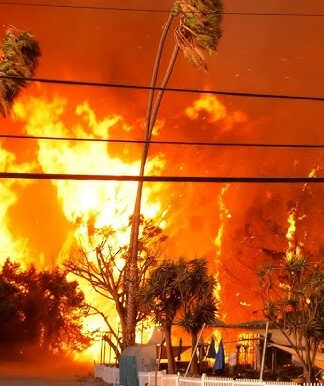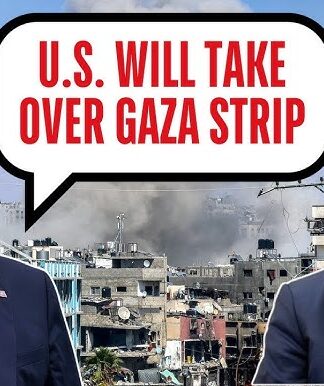ridiculous by design
Robert InlakeshRobert Inlakesh
Source: Al Mayadeen English
7 Nov 2024 12:56
8 Min Read
The starting point of any analysis of the Zionist “ceasefire” proposals is to understand that they are only intended to apply to one side.
Listen
x
What the US and their Israeli partners label as “ceasefire” agreements are, in fact, proposals for both Lebanon and Gaza to submit their weapons and bargaining chips, allowing for the Zionist army to take a break, only to again permit them to fire at will with no defense.
If you seek to understand the seriousness with which the United States and the Zionist entity are working together to achieve a ceasefire in both Gaza and Lebanon, you need only look at how successful they have been over the past 13 months and how the goalposts constantly move.
The demands of the Hamas movement, which leads on behalf of all the Palestinian Resistance factions at the negotiating table, have not grown since the beginning of the war on October 7, 2023. In fact, the Palestinian movement has been rather flexible on its demands, originally requesting an all-for-all prisoner swap, a point which it would later concede.
Yet, on the Israeli side of the negotiating table, the long ever-expanding list of ridiculous demands never ends and is not even worth dignifying with any serious diplomatic effort. In fact, merely entertaining these so-called ceasefire negotiations is only damaging at this point, as it enables the US-Israeli alliance to achieve its desired objectives.
There are no ceasefire agreements on the table
The starting point of any analysis of the Zionist “ceasefire” proposals is to understand that they are only intended to apply to one side. In the case of Gaza, Israeli Prime Minister Benjamin Netanyahu has repeatedly stated that he cannot accept any agreement that forces him to stop the war. In addition to this, the Zionist entity now wants to maintain the ability to keep its forces in what are known as the Philadelphia and Netzarim corridors, while also setting up a “buffer zone” in the outskirts of Gaza, constituting a land grab of at least 16% of the territory.
While there are occasionally statements issued from Israeli senior officials, regarding a desire to conclude a prisoner swap and ceasefire agreement, they have all made it clear that their goal of “total victory” over Hamas must be fulfilled. This kind of linguistic trickery provides the Zionists with the perfect cover story so that US Secretary of State, Antony Blinken, can then place himself in front of the cameras periodically and lie to the world that the Israelis accept a ceasefire.
In reality, the Zionist regime just wants a deal to extract its prisoners, an agreement which would then be quickly violated in the name of “destroying Hamas”. On top of this, why wouldn’t the Israelis just re-arrest all of the Palestinian detainees they release, just as they did to many of those who were released last November as a result of the temporary truce? Who would step in to punish the Zionists for this? Certainly not the US.
Netanyahu vows that he will conclude a ceasefire after he completes the objective of destroying Hamas, which makes no sense, because if he was to achieve this war goal, then who would he be doing the ceasefire with? There would literally be no need for a ceasefire in this case.
Then we turn to Lebanon, where the Israelis want to achieve their war goals – a conflict which they started by invading Lebanese territory – through amending UN resolution 1701. Their goal is to have Hezbollah withdraw to north of the Litani River and disarm, for there to be a potential arms embargo on Lebanese territory, all while the Zionist regime would maintain the right to bomb Lebanon whenever it chooses without consequence.
In other words, the Israelis are asking for the Lebanese resistance to stop defending their country so that they can bomb whenever they like without any consequence. This is not a ceasefire, this is one side agreeing to stop offensive and defensive actions while the other side continues to attack.
By definition, a ceasefire is when both sides agree to stop offensive action through mediation. So, factually, we need to stop calling the ongoing US-Israeli requests “ceasefire talks”; these are surrender terms.
Why are the Israelis and Americans lying?
By definition, there are no ceasefire talks or agreements that have been publicly presented for Gaza or Lebanon. These are instead surrender terms. However, it is clear that the Palestinian Resistance is not defeated, and, in the case of the Lebanese Resistance, they have successfully repelled the Zionist entity’s attempted ground invasion for an entire month, hence, neither will agree to such ridiculous proposals.
In the case of what they seek to impose upon Hezbollah in Lebanon, it is akin to the kind of demands that were made in 1982, after the siege of Beirut that led to the surrender of the Palestine Liberation Organisation (PLO). Today, quite the opposite is the case, the Lebanese Resistance has prevented the Zionists from occupying a single Lebanese village, despite the Israelis having amassed a force of 50,000+ soldiers to do so.
The Israelis are not stupid in this regard, they understand well that this kind of diplomacy is never going to work, nor was it intended to. So, what purpose do such surrender proposals serve?
There are a number of factors that go into the thinking of the Zionist leadership when presenting such unreasonable demands, the first being that they seek to impose a strong starting point for any serious future indirect ceasefire negotiations with Lebanon. Psychologically, it has the same effect as setting a certain threshold for a product being sold at an auction; it attempts to bait the bidders into believing that anything under what was originally proposed is a good deal.
Then we have the aspect of this being a psychological ploy, which seeks to impact the Lebanese and wider regional public into believing that the Israelis are winning the war, or are at least in the driver’s seat. Despite the events transpiring on the ground presenting a convincing argument as to the strength of Hezbollah in the battle, such crazy demands for a ceasefire aim to sow doubt.
On top of this, there is also pressure on the US government domestically, as well as internationally, to conclude the war, which is then transferred onto the Israeli regime, which is also dealing with its own pressures. Therefore, the very act of initiating ceasefire talks acts as a method to release some of the growing pressure.
Similarly, when it comes to the war in the Gaza Strip, there is tremendous pressure that is being exerted on the US government to end the genocide. While anything short of a complete defeat of Hamas would be considered a major defeat of both Washington and “Tel Aviv”, neither regime wants to allow this to happen. However, when the dust settles after the war, when the objectives are not complete, and when the remaining Israeli captives who are still alive are traded for Palestinian detainees, everyone will begin to ask why it carried on for so long.
Therefore, the US-Israeli alliance seeks to continue the war in Gaza indefinitely, unless they are forced to end it due to enormous pressure from another front in the now regional conflict. So, periodically, they engage in nonsense diplomacy that seeks to take some of the pressure off of their backs, using the ridiculous ceasefire talks to claim they are working toward a solution in order to buy more time with the hope that Hezbollah will abandon Gaza, which will then allow for the war to continue for as long as it takes to finish off Hamas.
To conclude, we need to stop dignifying these diplomatic maneuvers as “ceasefire talks”; by definition, they aren’t ceasefire proposals and the intention is not to reach one either.
The opinions mentioned in this article do not necessarily reflect the opinion of Al mayadeen, but rather express the opinion of its writer exclusively.
Gaza Strip
ceasefire talks
Israeli aggression
Israel
ceasefire
Gaza genocide
Israeli occupation
Lebanon
ceasefire proposal
Hamas
Gaza
Islamic resistance in Lebanon
Robert Inlakesh
Robert Inlakesh
Political Analyst, Journalist, and Documentary Filmmaker.


























